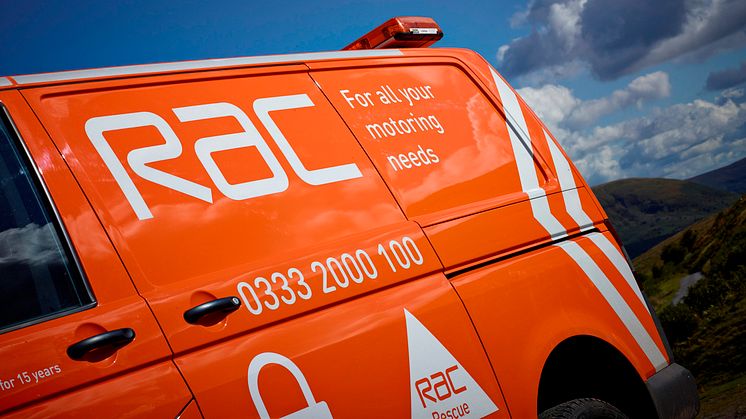
Press release -
Switch to diesel leads to lowest petrol sales in 25 years
Price of petrol and diesel rise in March despite drop in wholesale prices
Petrol sales fell 10% in March to a record low* of 1.31bn litres following a 4% growth in February when drivers took advantage of prices 22p a litre lower than the year before, according to the latest figures released by HMRC**.
Sales of diesel also dropped by 7% from the bumper February figures to 2.26bn litres making for a combined 8% dip in fuel sales in March with 3.57bn litres. While not as low January (3.48bn litres) it is the next lowest figure recorded since January 2014 when just 3.49bn litres were used by drivers.
During March petrol prices increased 3p a litre despite only a penny being added to the wholesale price; but were still on average 18p a litre cheaper than March 2014. However, petrol sales in March were 4% down compared to the same month last year while diesel was only down 1%.
Diesel went up by nearly 2p a litre despite the wholesale price going down 2p a litre. The price of a barrel of crude also dropped $7 while the pound weakened very slightly against the fuel-trading dollar undermining the oil price reduction.
RAC fuel spokesman Simon Williams said: “Fuel usage statistics from February clearly demonstrated increased vehicle use from both petrol and diesel drivers, but these figures show this has been reversed.
“March is traditionally one of the lowest months of the year for petrol consumption, as a result of families using their cars less ahead of greater use in the Easter holidays. This March, however, has seen the lowest petrol sales in 25 years, no doubt driven by rising pump prices. Diesel sales are, of course, always buoyed by the fact lorries, vans, buses and many company cars are fuelled by it.
“The decline in petrol sales has been apparent for several years as motorists switched to diesel for better fuel economy and lower carbon dioxide emissions. Diesel fuel sales overtook petrol sales in 2007 (diesel 25.5bn v petrol 24bn litres) and have continued to grow to 27.9bn litres in 2014 in contrast to just 17.6bn litres of petrol.”
The UK currently has 35.9m vehicles*** of which 29.7m are cars. The car parc is split between one third diesel vehicles and two thirds petrol, with business drivers and commercial vehicles having the dominance of diesel engines. Diesel’s share of new car sales has been increasing steadily with figures published for 2014 showing more than half of new car sales were of diesel vehicles.
The fall in fuel sales also led to a fall in the amount of duty collected by the Treasury –£2.06bn – down by £172m – from £2.24bn in February. Nevertheless the Treasury still takes nearly 70% of the pump price in fuel duty and VAT.
Ends
Notes to Editors
* Since currently published HMRC records which date back to 1990
** HM Revenue and Customs Hydrocarbon Oil Duties Bulletin March 2015
https://www.uktradeinfo.com/Statistics/Tax%20and%20Duty%20Bulletins/Oils0315.xls
*** Department for Transport Vehicle Licensing Statistics: Quarter 3 (Jul - Sep) 2014
https://www.gov.uk/government/uploads/system/uploads/attachment_data/file/385476/vls-q3-2014.pdf
Topics
Notes to Editors
About the RAC
First formed in 1897, the RAC has been looking after the needs of its members and championing the interests of drivers for more than 120 years.
Today it has more than eight million members and is one of the UK’s most progressive motoring organisations, providing services for both private and business motorists. Whether it's roadside assistance, insurance, buying a used car, vehicle inspections and checks, legal services or up-to-the-minute traffic and travel information – the RAC offers a solution for all motoring needs. The RAC is committed to making motoring easier, safer, more affordable and more enjoyable for drivers and road users.
The RAC is the motorist’s champion and campaigns to support the interests of its members and UK drivers at a national level. This includes voicing concerns about the increasing cost of motoring, particularly the price of fuel and the high level of tax levied on it, advancing levels of road safety, and supporting the needs of all drivers, from young to old.
The RAC’s annual Report on Motoring – first published in 1989 – is one of a kind and provides a clear insight into the concerns and issues facing today’s motorists.
For the very latest news on UK fuel prices, check RAC Fuel Watch. It provides a comprehensive guide to the latest UK unleaded petrol and diesel prices – both at the wholesale level and at the pump - and tracks these prices daily to help drivers check if the price they pay to fill up is a fair one.

